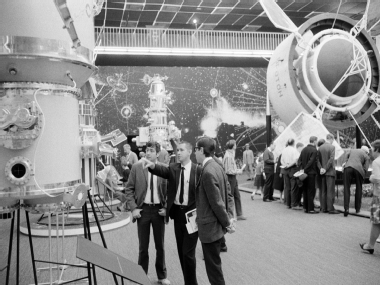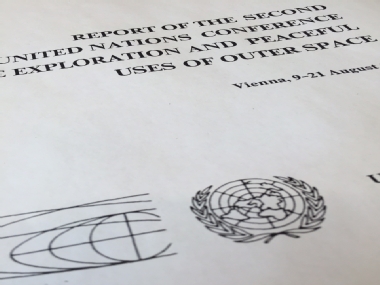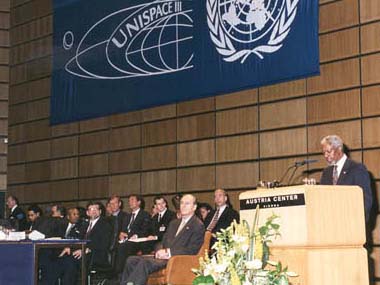UNISPACE Conferences
Since the beginning of the space age, triggered by the launch of Sputnik I in 1957, the United Nations has accorded significant importance to the promotion of greater international collaboration in outer space.
The potentials of space technology for socioeconomic development were immense and that the best way to reap these benefits were through international cooperation in the peaceful uses of outer space, facilitated by the United Nations.
Recognising this immense potential of space technology for socioeconomic development, the United Nations organized three unique global Conferences on the Exploration and Peaceful Uses of Outer Space - UNISPACE Conferences - to engage States and international organizations to further their cooperation in the peaceful uses of outer space.
UNISPACE Conferences provided a platform for a global dialogue on key issues related to space exploration and exploitation that have yielded tremendous scientific as well as economic and societal benefits for humankind.
All three UNISPACE conferences were held in Vienna.
UNISPACE III+5
Five years after the last major international conference on outer space, UNISPACE III, the Committee on the Peaceful Uses of Outer Space (COPUOS) reviewed the implementation of the 33 recommendations of the Third United Nations Conference on the Exploration and Peaceful Uses of Outer Space (A/59/174).
See the implementation of UNISPACE III recommendations in UNISPACE III+5 report, A/59/174


